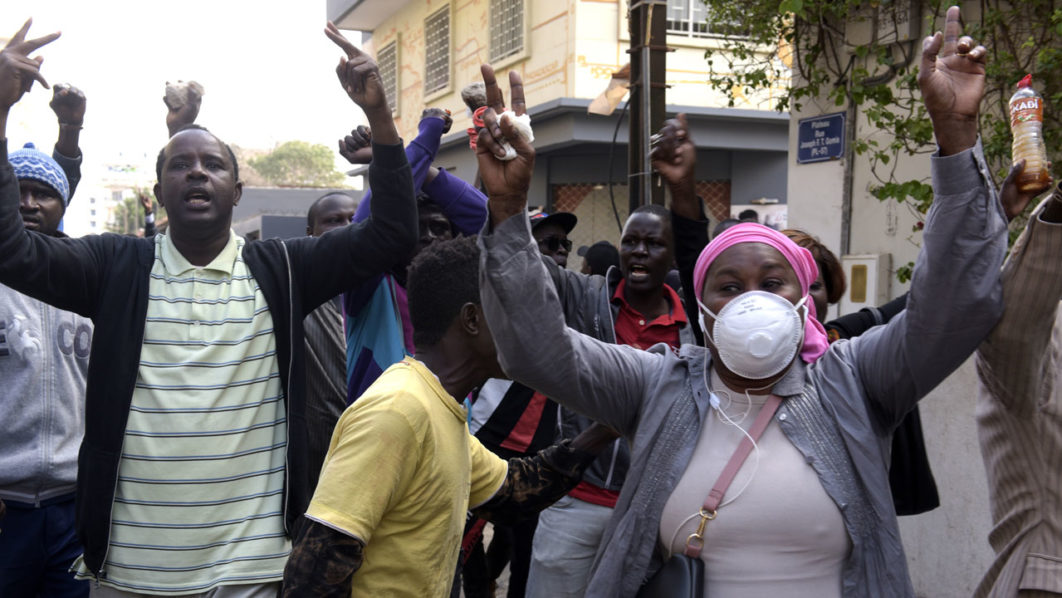
Police fired tear gas to break up a protest in Senegal’s capital Dakar on Thursday and arrested several people, including a former premier, protesting against a move to raise the bar for presidential candidates.
With less than a year to go before the presidential election, the government wants to increase the number of signatures candidates need to collect before standing in presidential elections — which the opposition says is aimed at limiting and controlling opposition.
Two opposition figures — Malick Gakou of the Grand Parti and Thierno Bocoum of the Agir movement — were among those arrested, their parties said.
Idrissa Seck, who headed the government between 2002 and 2004, was also arrested while “en route for the Assembly,” an official from his Rewmi party, Mbacke Seck, told RFM radio.
The information was confirmed to AFP by the former PM’s entourage.
Around 100 demonstrators had barricaded a street near parliament and were dispersed by tear gas, AFP journalists reported.
Police also fired tear gas at a group of around 50 protestors throwing stones at a police vehicle.
Meanwhile, in the National Assembly, under the protection of police wearing helmets and shields, deputies started debating a law requiring all presidential candidates to collect the signatures of at least one percent of all voters to be able to stand.
The first round of the presidential election is scheduled for February 24, 2019.
The draft legislation, aimed at “furthering democracy” and drawn up by President Macky Sall, had been been approved in committee in the Assembly on Monday.
Sall was elected in 2012 and is seen as the most likely candidate to win next year’s election.
The authorities say they fear an inflation in the number of presidential candidates in a country with nearly 300 parties, recalling the presence of 47 lists in the legislative elections of July 2017.
But the opposition argues the law’s sole purpose is to stop opposition candidates from running for president and facilitate a “re-election” of Macky Sall.
[ad unit=2]



